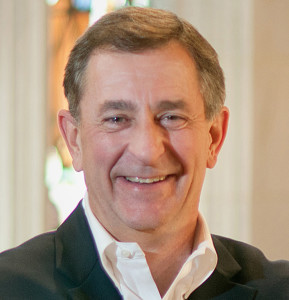When churches turn on themselves, things get very ugly very quickly.
As if it weren’t already hard enough to be and do church in this culture, we face an exponential increase in internal congregational conflict and turmoil. American Christians are destroying our churches from the inside out.
We’ve seen it coming for years, and the stress of the pandemic along with the coarsening of public life, the dark side of social media, and the ongoing decline of most church metrics has created a perfect storm of conflict.

Bill Wilson
Church conflict is a special kind of conflict. Part of what makes it debilitating is that it is so contrary to our guiding principles (see the Sermon on the Mount, Beatitudes, etc.) as well as the life and character of Jesus Christ. I’ve lost count of the number of people who have told me over the years about the scarring and trauma their local church inflicted upon them as they endured some sort of unholy war. Lately, those calls and conversations are escalating.
All this leaves me feeling very sad and often a bit helpless. Far too often, people like those of us in the congregational helping profession are called to a congregational conflict very late in the game. Often, things have degenerated to the point that many have pulled out of the church, while others have shown their worst selves in such a way that their actions and their impacts cannot be undone.
While mediation or transformation might have been helpful early in the conflict, what we often find is that the only thing left to do is clean up the mess and hope the long-term consequences can be contained. I’ve always heard that a full-scale congregational conflict requires a 10-year recovery period. That might be a bit optimistic, based on my experiences.
I’m especially saddened by the shortsightedness of laity and clergy who are themselves unwitting victims of secular politics, ambitious personal agendas, emotional immaturity and overt power plays. We continue to be products of our secular culture rather than the salt and light Jesus commanded us to be.
“Church conflict is a gift that keeps on giving for years to come.”
Thinking that a forced termination for no justifiable cause or a church split is somehow helpful to the cause of Christ is the product of a clouded mind. Instead, as the Bible predicts, when God’s people turn on themselves, the inevitable result is that the sins of the mothers and fathers are visited upon their children and their children. Church conflict is a gift that keeps on giving for years to come.
While there is little question that a season of heightened conflict among clergy and in congregations is upon us, perhaps there also is an opportunity here. My prayer is that we might recognize the dangerous course we are on and repent. Turn back and turn toward the ethics taught by Jesus.
If we can do so, we could discover a teachable moment as thinking people step back from their heated rhetoric, the demonization of their opponents, the assigning of motives to those who differ from them, the embrace of secular political tactics, and the lack of grace and understanding to humbly ask, “Why?”
It will take cooler heads and wiser souls exerting their influence and asking these critical questions to help churches navigate the whitewater they are facing. You can start with two very simple questions:
- Why are we doing this?
- Why is this happening now?
The Why this? Why now? question combination nearly always will lead you away from the presenting symptomatic problems to the deeper issues we too often overlook or simply choose to ignore. As much as we may wish we could solve our church’s 20-year slide in attendance by getting rid of an employee or multiple employees or jettisoning a ministry or worship service, in reality there are powerful forces at work in our midst that defy any attempt at a quick fix.
“There are powerful forces at work in our midst that defy any attempt at a quick fix.”
One of the unseen tidal forces that is playing out in our midst was first articulated by Bill Bishop in his book The Big Sort: Why the Clustering of Like-minded America Is Tearing Us Apart more than a decade ago. In it, he chronicles the way our nation is rearranging itself into discrete enclaves that have little to say to one another and little incentive to bother trying.
Unlike the diverse and beloved community Jesus and Paul portray in the New Testament, the American church of the 21st century is increasingly coalescing into homogenous groups of like-minded people who resist being challenged and choose not to consider the possibility there may be a way of thinking other than their own. The resulting intolerance for differences or diversity is both unbiblical and ominously unhealthy for the body of Christ.
It is also a breeding ground for conflict and for church members turning on each other. As we veer toward only associating with those who think and believe like we, we lose sight of the ideal held up at Pentecost and in texts like Galatians 3:28 and Colossians 3:11. The audacity of Jesus inviting a Roman tax collector (Matthew) and a Jewish zealot (Simon) to serve alongside one another as disciples is lost upon us as we openly wonder whether someone from the opposing political party can actually be a Christian. How we must break the heart of God.
Let’s start here: Read the stories in Acts and the early churches and follow their lead as they welcome anyone to the table who proclaims: “Jesus is Lord.” See where that takes you.
The next time you are tempted to turn on a Christian brother or sister and employ the tactics of secular politics or social media trolls, remember that Jesus has a higher calling for the church that bears his name. It starts with you: Put down your weapons and call a ceasefire to the battle inside your church. You have much more important and life-giving tasks before you.
Bill Wilson serves as director of The Center for Healthy Churches in Winston-Salem, N.C., and is a member of the Baptist News Global board of directors.
Related articles:
Three words of hope for the church in transition | Opinion by Mark Wingfield
Carey Nieuwhof: Reflections on the wilderness, COVID, burnout and how to move forward
Get ready: There’s a second wave of church conflict coming | Opinion by Mark Wingfield
The train of conflict is coming to a church near you | Opinion by Bill Wilson


